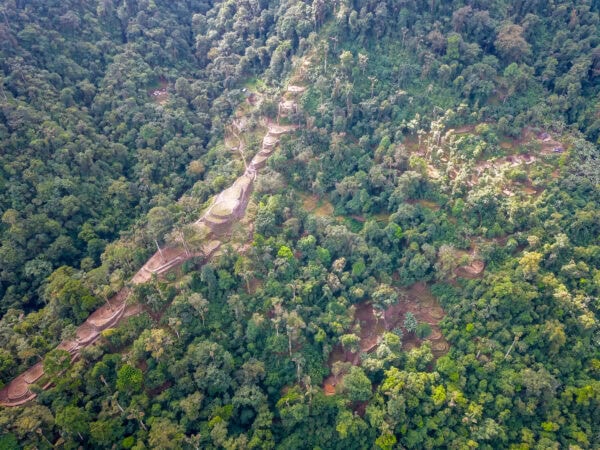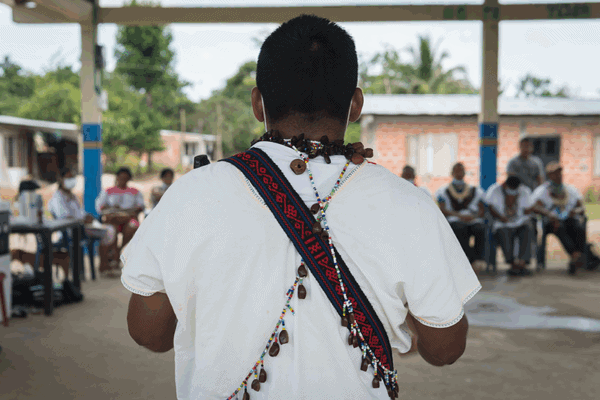An ancient cooking method with numerous adverse effects
For indigenous and campesino families living in rural areas of Colombia, cooking is a major household activity, and basic wood stoves are the principal means of cooking, despite their negative impacts on the environment, community health and well-being.
Environmentally, inefficient wood-burning stoves are a driver of forest loss and forest fragmentation. Firewood is regularly collected alongside rivers and creeks due to proximity and ease of access, causing negative impacts to riverine ecosystems and leading to erosion and landslides.
Inefficient stoves, often filling rural kitchens with smoke, lead to health problems among community members, notably women and children. These health issues encompass hypertension, loss of vision, and respiratory diseases like bronchitis and asthma. Additionally, the physically demanding tasks associated with collecting, transporting, and cutting firewood can result in back injuries, as can the practice of stooping to cook over low hearths.
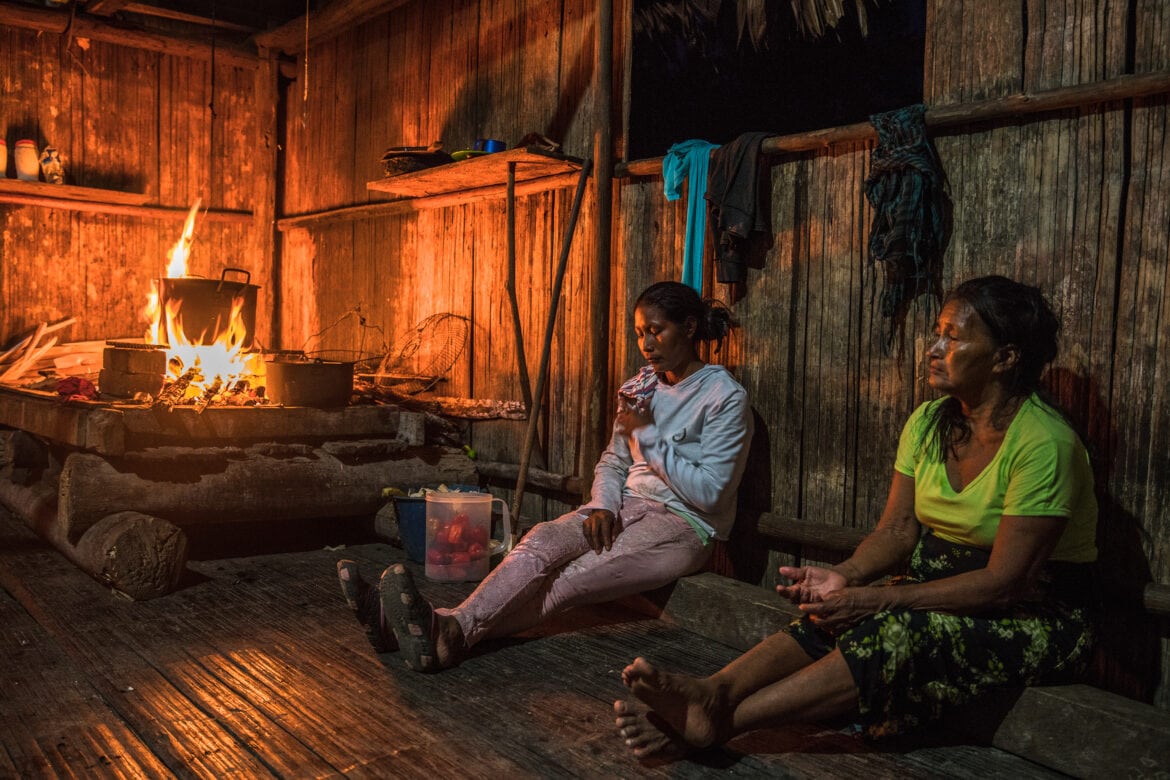
A project rooted in ACT’s holistic approach
For more than 25 years, ACT has been actively engaged in regions of exceptional biological and cultural significance. This includes the remote Sierra Nevada de Santa Marta in northern Colombia, an isolated triangular-shaped mountain range with glaciated peaks, home to diverse ecosystems. Additionally, ACT has worked in the Andean-Amazon forests within this region, which exhibit ecological features from both the Andes and the Amazon. These areas are renowned for their remarkable biodiversity, making them vital hubs for biological conservation and research.
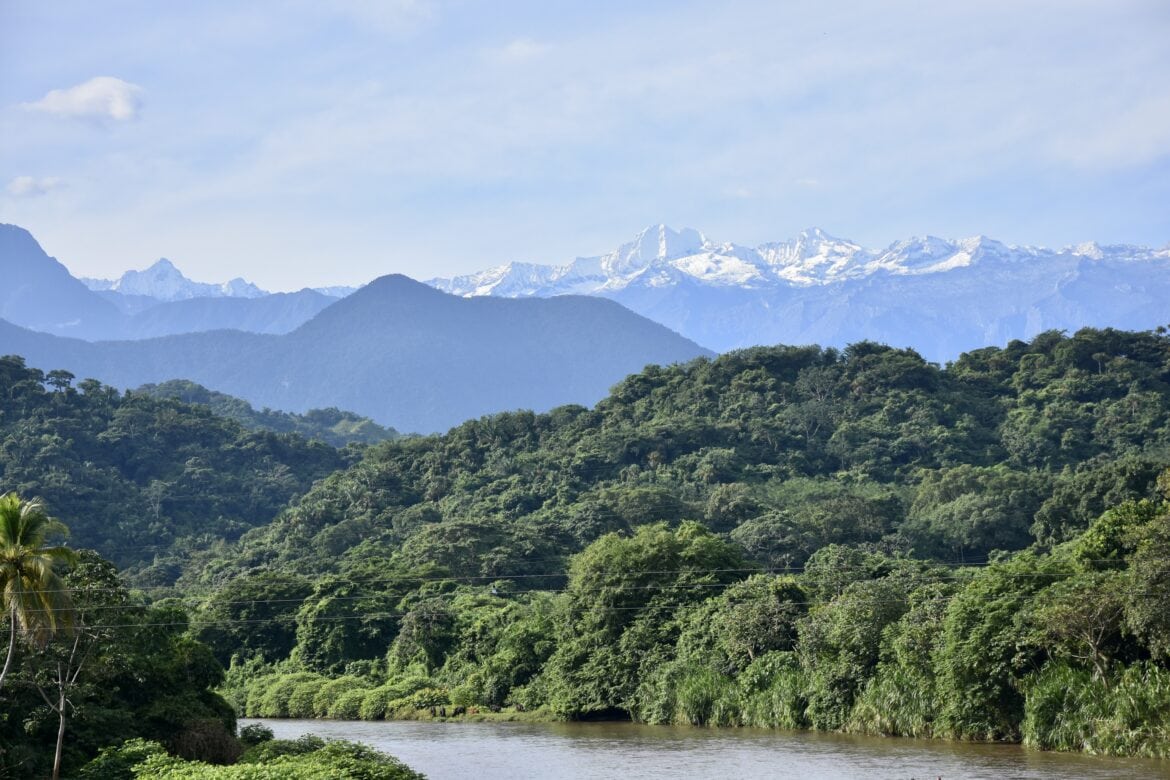
Communities living in these regions have been historically marginalized and affected by the country’s decades-long armed conflict. In spite of the risks and the numerous challenges associated with maintaining a long-term presence in these territories, ACT has worked side by side with its partner communities to map their lands, create and expand indigenous reserves, restore degraded ecosystems, implement agroforestry systems, and strengthen cultural traditions.
As part of this ongoing support, ACT gained experience installing fuel-efficient stoves, and eventually decided to pursue a pilot clean cooking project with the generous support of the Wanderlust Fund. Guided by close consultation with the project beneficiaries, the pilot project’s implementation included its introduction to and consensus-building with communities, signing of conservation agreements, delivery of materials and supplies, installation and adaptation of stoves, and follow-up and planning of a second phase.
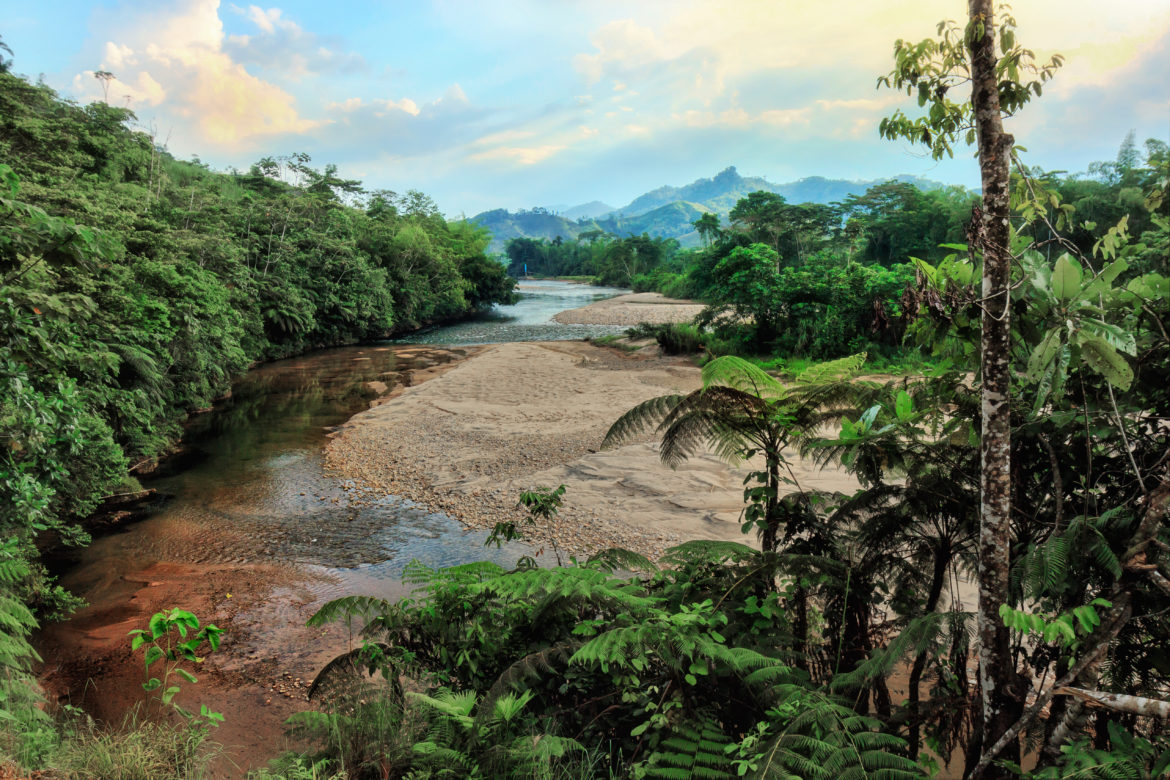
Integrating socio-cultural factors
After taking into account the unique context and needs of each community, it became evident that installing fuel-efficient stoves at indigenous boarding schools in the Colombian Caribbean would reach a larger number of families and provide educational institutions with proper infrastructure. However, for farmers living in remote areas who were actively implementing agroforestry systems and demonstrating a commitment to preserving local ecosystems, supporting them individually was the more judicious choice.
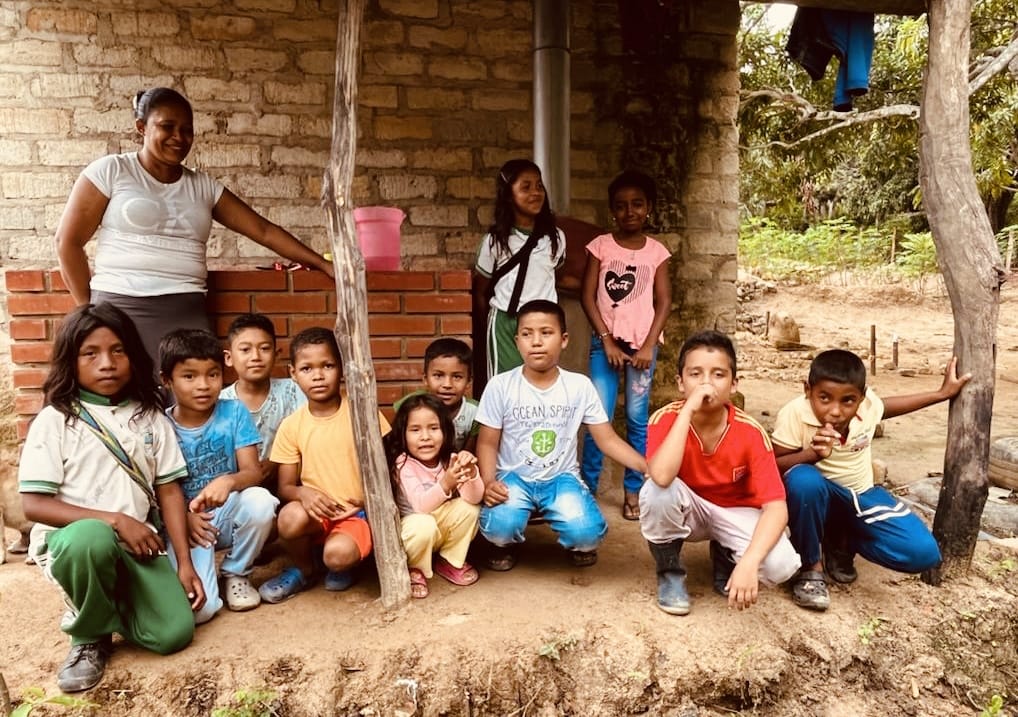
The rationale behind the decision-making process is well explained by ACT staff working directly in the field.
Juana Londoño, ACT’s Sierra Nevada Coordinator, described the process working with the Kankuamo people:
“After evaluating different options, we decided to install fuel-efficient stoves in schools and community centers. Placed in open spaces, kitchens play a central role around which families, children and other members of the community gather. As a natural meeting point, they help strengthen cultural exchanges.”
Juana Londoño, Sierra Nevada Coordinator
Patricia Navarrete, ACT’s Caquetá & Livelihoods Coordinator, shared her experience supporting farmer communities and rural schools:
“During the project’s awareness-building stage, we decided to support families that were implementing sustainable management practices in their farms and had expressed their commitment to preserve local ecosystems. In return, the communities were asked to contribute their time and the bricks and concrete that were necessary to build the stoves.
Patricia Navarrete, Caquetá & Livelihoods Coordinator
Clean cooking: an initiative with clear scaling potential
To date, the clean cooking pilot project has benefitted 324 families: 303 in the Sierra Nevada and 21 in the Department of Caquetá. Project beneficiaries such as Daisy and her husband Angelmiro, Yolanda and her husband Wenceslado, and the students at La Soledad School, are experiencing improvements in their quality of life and enjoying healthier meals, while schools and rural farms are reducing their firewood consumption and growing timber trees instead of cutting down native species.
Following the pilot’s conclusion, ACT has received new requests from its partner communities and sees a clear scaling potential, together with an interest in testing alternative solutions such as biodigesters.
Share this post
Bring awareness to our projects and mission by sharing this post with your friends.



